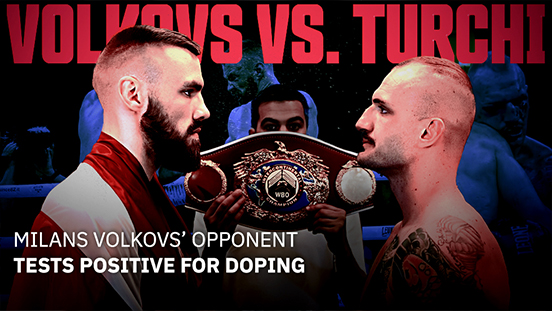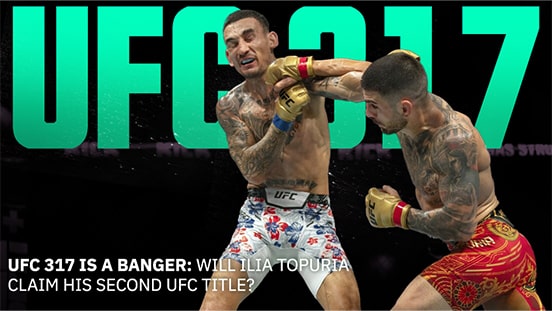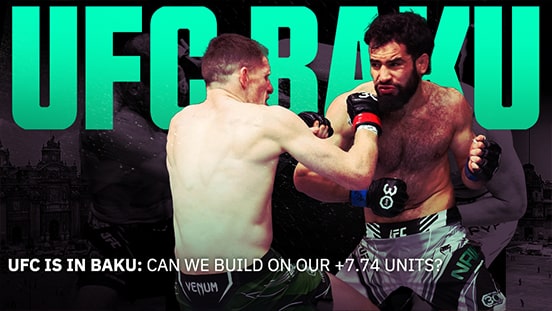Manny Pacquiao: a name synonymous with greatness. From humble beginnings in the rural heartlands of the Philippines to global superstardom, Pacquiao’s life reads like a script for a movie you’d never think was real. With a professional record of 62 wins (39 by knockout), 8 losses, and 2 draws, Pacquiao is the only boxer in history to hold world titles in eight different weight divisions, making him one of the greatest fighters of all time.
But there’s more to the “Pacman” than just his legendary boxing career. He’s a congressman, a basketball enthusiast, a colonel, a philanthropist, and even a pop star. In this article, we explore the many sides of Manny Pacquiao — but specifically, the dreamer who dared to tackle everything thrown his way.
Humble Beginnings
Manny Pacquiao came into the world on December 17, 1978, in the remote town of Kibawe, located in the Bukidnon province of Mindanao, Philippines. He was one of six children in his family, and Manny’s early childhood years were tough — severe poverty prevailed in the families of many Filipinos, including Pacquiao’s own. He completed his elementary education at Saavedra Saway Elementary School in General Santos, but dropped out of high school due to the lack of funding.
At 12, Pacquiao discovered boxing when his uncle, Sardo Mejia, showed him the 1990 fight between Mike Tyson and Buster Douglas. Mejia began training his nephew in a home gym, where Pacquiao’s future in boxing quickly came to light. After six months of training, he began boxing in a park in General Santos, eventually traveling to other cities to seek out and fight better opponents. By 15, he was considered the best junior boxer in the southern Philippines.
Several factors underpinned the widespread poverty experienced by Filipino families during the 1970s and 1980s — Manny’s included. At the forefront was economic mismanagement and political instability, particularly under the regime of Ferdinand Marcos. The government’s over-reliance on foreign debt fueled an entirely unsustainable economic model.
Income inequality also staggered poverty levels. The concentration of wealth among a small elite class created structural inequities that left a large portion of the population struggling to meet basic needs. Wages stagnated for laborers, particularly those dependent on agriculture.
Additionally, rapid population growth strained resources and infrastructure. Between 1970 and 1980, the Philippine population grew at an annual rate of approximately 2.75%, one of the fastest in the world at the time. This expansion outpaced job creation and overwhelmed social services, leaving many families without access to education, healthcare, or stable employment.
These factors contributed to a deep cycle of poverty, especially in rural regions like Bukidnon, where Manny Pacquiao grew up, and largely shaped the socio-economic landscape of the nation.
Punching Into Politics
In 2010, Manny Pacquiao took on a new challenge outside of the boxing ring: the political arena. Driven by his desire to give back to his country and address the persistent issues of poverty and inequality, he ran for a congressional seat representing his wife’s home province, the district of Sarangani.
Pacquiao’s candidacy was highly questioned — he had no genuine qualifications to do so, and many accused him of using his celebrity status to gain political “clout”. However, Manny’s deep connection to the Filipino people, particularly the underprivileged, played in his favor.
Pacquiao had attempted to enter politics earlier in 2007 but lost in his bid for a congressional seat in South Cotabato. He refocused his efforts and returned with a more organized campaign in 2010, aligning himself with the Nacionalista Party, a significant political group in the Philippines. His campaign emphasized poverty alleviation, education, and healthcare — issues that resonated deeply with the people of Sarangani, many of whom lived in conditions similar to what Pacquiao himself experienced in his youth.
His status as a national icon and a “rags-to-riches” story endeared him to voters. Pacquiao won the 2010 election by a landslide, defeating Roy Chiongbian, a member of a powerful political dynasty in Sarangani. With this victory, Pacquiao became the first professional boxer to ever hold a congressional seat while still actively competing in the sport.
As a congressman, Pacquiao focused on projects aimed at improving the lives of his constituents. He spearheaded initiatives to build roads, provide scholarships, and improve access to healthcare. Despite criticisms about his frequent absences from legislative sessions due to his boxing commitments, Pacquiao’s work and dedication to his constituents earned him widespread respect in Sarangani.
Knocking Out Poverty
Manny Pacquiao’s philanthropic endeavors have significantly impacted numerous lives, especially in the Philippines. In 2015, Forbes Asia recognized Manny Pacquiao as one of the “Heroes of Philanthropy”.
Pacquiao has funded the construction of homes for impoverished families in the Philippines. In 2015, he financed the building of 1,000 houses in Sarangani, providing free shelter to beneficiaries. He expressed his joy, stating, “I’m so happy giving these houses free to my constituents in the Sarangani Province from my own pocket.”
Beyond housing, Pacquiao has extended financial aid to various causes. His foundation has provided over 200 scholarships and more than $400,000 in medical assistance to those in need. Additionally, he spends approximately $400,000 annually to cover college costs for over 1,000 students.
Collaborating with organizations like FundLife International, the Manny Pacquiao Foundation has worked to protect vulnerable adolescents across the Philippines, focusing on safeguarding young girls at risk of abuse and survivors of sexual violence.
The Pacquiao Playbook
Manny Pacquiao’s love for basketball runs deep. In 2014, Pacquiao joined the Philippine Basketball Association (PBA), the country’s premier professional basketball league, as a playing coach for the Kia Sorento (later Mahindra Enforcers) during their inaugural season. Despite being 5’6” and primarily known for his boxing career, Pacquiao surprised fans by entering the PBA Draft, where he was selected 11th overall.
As a player, Pacquiao’s on-court performance was modest, with his primary role being more symbolic than competitive. His debut game on October 19, 2014, against Blackwater Elite, drew considerable media attention. Although his stats were minimal, Pacquiao’s presence brought attention to the team and elevated interest in the league.
In addition to his PBA stint, Pacquiao founded the Maharlika Pilipinas Basketball League (MPBL) in 2017, a regional semi-professional league aimed at promoting grassroots basketball across the Philippines. The MPBL’s mission is to provide a platform for young talents and lesser-known players to show their skills, fostering local pride and community engagement. The league has since grown significantly, with multiple teams and a nationwide following.
Honor to Fight
Manny Pacquiao has also made his mark in military service, having been an active reservist in the Philippine Army. His journey in the Reserve Force began on April 27, 2006, when he enlisted with the initial rank of sergeant. Later that year, on December 1, he was promoted to Technical Sergeant, and by October 7, 2007, he reached the rank of Master Sergeant, the highest possible rank for enlisted personnel.
Continuing his ascent, Pacquiao was granted the special rank of Senior Master Sergeant on May 4, 2009. In this role, he was designated as the Command Sergeant Major of the 15th Ready Reserve Division, demonstrating his leadership within the reserve force.
As his political career advanced, so did his military rank. In accordance with Armed Forces of the Philippines (AFP) regulations for reservist officers serving in Congress, Pacquiao was elevated to the rank of lieutenant colonel. His dedication and service eventually led to his promotion to colonel in the Reserve Force of the Philippine Army.
Pop Star Pacman
Boxer, politician, actor, colonel, basketball player-coach, philanthropist — what other sidequest could have Manny Pacquiao taken?
Music.
Pacquiao recorded songs to use as entrance music for his fights and released them on two albums that were certified platinum locally in the Philippines. His music career began in the mid-2000s, with the release of his debut album, “Laban Nating Lahat Ito” (“This is Our Fight”), in 2006. One of the standout tracks, “Para Sa’yo Ang Laban Na ‘To” (“This Fight is For You”), actually became a hit.
In 2011, Pacquiao expanded his musical repertoire by covering Dan Hill’s classic, “Sometimes When We Touch”. His rendition gained international attention, especially after a performance on Jimmy Kimmel Live!, and peaked at number 19 on the Billboard Adult Contemporary chart in the United States. He returned to the late-night talk show two more times.
In 2015, he released the EP “Lalaban Ako para sa Pilipino” (“I Will Fight for the Filipinos”), featuring the title track used during his entrance for the highly publicized fight against Floyd Mayweather Jr., which Pacquiao ultimately lost.
The Pacquiao Dynasty
Manny Pacquiao is not only a global sports icon and public figure but also a dedicated family man who holds his role as a husband and father close to his heart. On May 10, 1999, he married Jinkee Jamora, his long-time partner and a central figure in his personal and professional life. Together, the couple has built a family, raising five children: Emmanuel Jr. (Jimuel), Michael Stephen, Mary Divine Grace (Princess), Queen Elizabeth (Queenie), and Israel.
Pacquiao’s eldest son, Jimuel, has followed in his father’s footsteps by stepping into the ring as an amateur boxer, while also gaining fame as a model and actor. His second son, Michael, has a career in music as a rapper. But the Pacquiao daughters have also flourished in their own right — Mary Divine Grace, known as Princess, is a well-known YouTube vlogger with over a million subscribers. Her channel was the starting point for the Pacquiao family’s presence in digital media. In addition to his five children with Jinkee, Pacquiao has acknowledged his son from a previous relationship. In 2006, Joanna Rose Bacosa disclosed that she had a child with Manny, named Emmanuel Bacosa. Emmanuel, also known as Eman, followed in his father’s footsteps by making his boxing debut on September 23, 2023, which ended in a draw. He dedicated his fight against Noel Pangantao in 2023 to his father, winning the fight and sharing an emotional embrace with Manny afterward.












